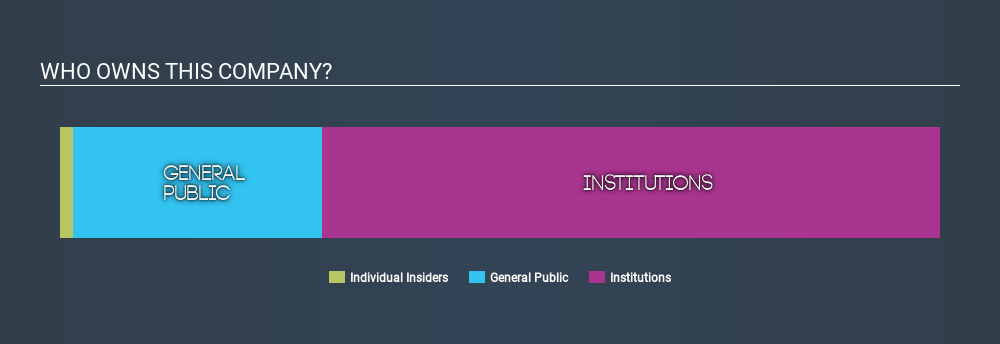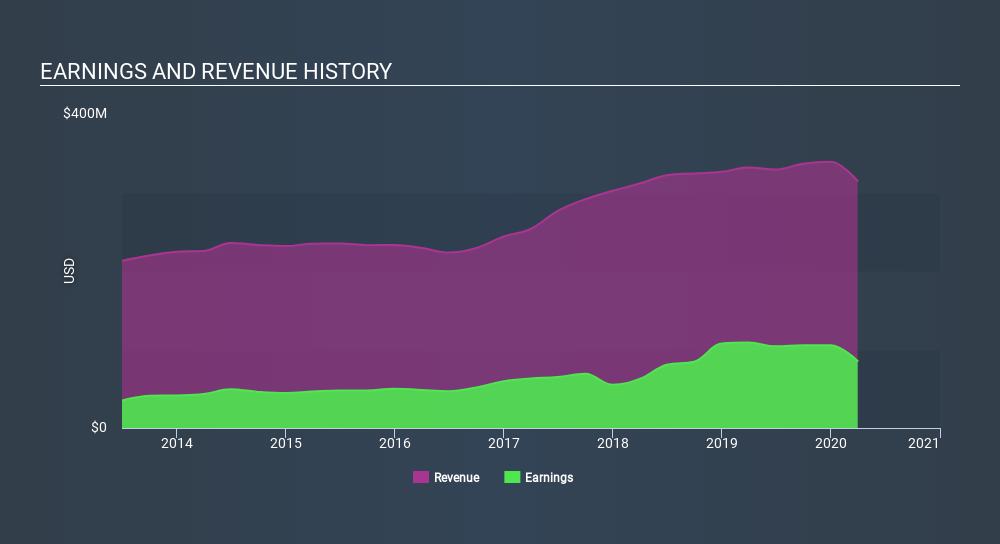- United States
- /
- Banks
- /
- NYSE:FCF
What Kind Of Shareholder Appears On The First Commonwealth Financial Corporation's (NYSE:FCF) Shareholder Register?

A look at the shareholders of First Commonwealth Financial Corporation (NYSE:FCF) can tell us which group is most powerful. Insiders often own a large chunk of younger, smaller, companies while huge companies tend to have institutions as shareholders. Companies that used to be publicly owned tend to have lower insider ownership.
With a market capitalization of US$705m, First Commonwealth Financial is a small cap stock, so it might not be well known by many institutional investors. Taking a look at our data on the ownership groups (below), it's seems that institutions own shares in the company. We can zoom in on the different ownership groups, to learn more about First Commonwealth Financial.
View our latest analysis for First Commonwealth Financial

What Does The Institutional Ownership Tell Us About First Commonwealth Financial?
Institutional investors commonly compare their own returns to the returns of a commonly followed index. So they generally do consider buying larger companies that are included in the relevant benchmark index.
We can see that First Commonwealth Financial does have institutional investors; and they hold 70% of the stock. This suggests some credibility amongst professional investors. But we can't rely on that fact alone, since institutions make bad investments sometimes, just like everyone does. When multiple institutions own a stock, there's always a risk that they are in a 'crowded trade'. When such a trade goes wrong, multiple parties may compete to sell stock fast. This risk is higher in a company without a history of growth. You can see First Commonwealth Financial's historic earnings and revenue, below, but keep in mind there's always more to the story.

Institutional investors own over 50% of the company, so together than can probably strongly influence board decisions. Hedge funds don't have many shares in First Commonwealth Financial. The company's largest shareholder is BlackRock, Inc., with ownership of 15%, The second and third largest shareholders are The Vanguard Group, Inc. and Dimensional Fund Advisors L.P., holding 11% and 7.3%, respectively.
A closer look at our ownership figures suggests that the top 13 shareholders have a combined ownership of 50% implying that no one share holder has a majority.
While it makes sense to study institutional ownership data for a company, it also makes sense to study analyst sentiments to know which way the wind is blowing. There are plenty of analysts covering the stock, so it might be worth seeing what they are forecasting, too.
Insider Ownership Of First Commonwealth Financial
The definition of company insiders can be subjective, and does vary between jurisdictions. Our data reflects individual insiders, capturing board members at the very least. Company management run the business, but the CEO will answer to the board, even if he or she is a member of it.
Most consider insider ownership a positive because it can indicate the board is well aligned with other shareholders. However, on some occasions too much power is concentrated within this group.
We can see that insiders own shares in First Commonwealth Financial Corporation. It has a market capitalization of just US$705m, and insiders have US$11m worth of shares, in their own names. Some would say this shows alignment of interests between shareholders and the board. But it might be worth checking if those insiders have been selling.
General Public Ownership
The general public holds a 28% stake in FCF. While this group can't necessarily call the shots, it can certainly have a real influence on how the company is run.
Next Steps:
It's always worth thinking about the different groups who own shares in a company. But to understand First Commonwealth Financial better, we need to consider many other factors. To that end, you should be aware of the 2 warning signs we've spotted with First Commonwealth Financial .
Ultimately the future is most important. You can access this free report on analyst forecasts for the company.
NB: Figures in this article are calculated using data from the last twelve months, which refer to the 12-month period ending on the last date of the month the financial statement is dated. This may not be consistent with full year annual report figures.
If you spot an error that warrants correction, please contact the editor at editorial-team@simplywallst.com. This article by Simply Wall St is general in nature. It does not constitute a recommendation to buy or sell any stock, and does not take account of your objectives, or your financial situation. Simply Wall St has no position in the stocks mentioned.
We aim to bring you long-term focused research analysis driven by fundamental data. Note that our analysis may not factor in the latest price-sensitive company announcements or qualitative material. Thank you for reading.
About NYSE:FCF
First Commonwealth Financial
A financial holding company, provides various consumer and commercial banking products and services in the United States.
Flawless balance sheet, good value and pays a dividend.
Similar Companies
Market Insights
Community Narratives



